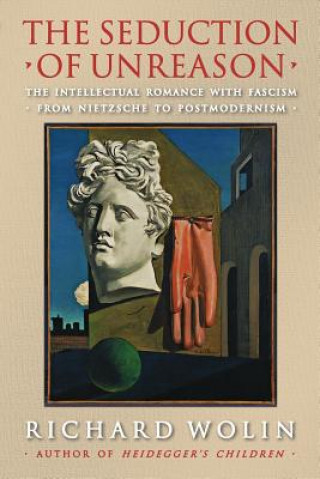
Kód: 04113576
Seduction of Unreason
Autor Richard Wolin
Fifteen years ago, revelations about the political misdeeds of Martin Heidegger and Paul de Man sent shock waves throughout European and North American intellectual circles. Ever since, postmodernism has been haunted by the specte ... celý popis
- Jazyk:
 Angličtina
Angličtina - Vazba: Brožovaná
- Počet stran: 400
Nakladatelství: Princeton University Press, 2006
- Více informací o knize

Mohlo by se vám také líbit
-

Politics of Being
1193 Kč -

Sources of Social Power: Volume 3, Global Empires and Revolution, 1890-1945
908 Kč -

Girls! Girls! Girls! in Contemporary Art
888 Kč -

Sovereign Wealth Funds
1162 Kč -

Travels of Cyllenius. A Poem. In Sixty-six Cantos. ... of 2; Volume 2
1087 Kč -

Streams of Gold, Rivers of Blood
1251 Kč -

Global TV
3630 Kč
Informovat o naskladnění knihy
Zadejte do formuláře e-mailovou adresu a jakmile knihu naskladníme, zašleme vám o tom zprávu. Pohlídáme vše za vás.
Více informací o knize Seduction of Unreason
 Anotace knihy
Anotace knihy
Fifteen years ago, revelations about the political misdeeds of Martin Heidegger and Paul de Man sent shock waves throughout European and North American intellectual circles. Ever since, postmodernism has been haunted by the specter of a compromised past. In this intellectual genealogy of the postmodern spirit, Richard Wolin shows that postmodernism's infatuation with fascism has been widespread and not incidental. He calls into question postmodernism's claim to have inherited the mantle of the left - and suggests that postmodern thought has long been smitten with the opposite end of the political spectrum.In probing chapters on C. G. Jung, Hans-Georg Gadamer, Georges Bataille, and Maurice Blanchot, Wolin discovers an unsettling commonality: during the 1930s, these thinkers leaned to the right and were tainted by a proverbial "fascination with fascism." Frustrated by democracy's shortcomings, they were seduced by fascism's grandiose promises of political regeneration. The dictatorships in Italy and Germany promised redemption from the uncertainties of political liberalism. But, from the beginning, there could be no doubting their brutal methods of racism, violence, and imperial conquest.Postmodernism's origins among the profascist literati of the 1930s reveal a dark political patrimony. The unspoken affinities between Counter-Enlightenment and postmodernism constitute the guiding thread of Wolin's suggestive narrative. In their mutual hostility toward reason and democracy, postmodernists and the advocates of Counter-Enlightenment betray a telltale strategic alliance - they cohabit the fraught terrain where far left and far right intersect. Those who take Wolin's conclusions to heart will never view the history of modern thought in quite the same way.
 Parametry knihy
Parametry knihy
Zařazení knihy Knihy v angličtině Society & social sciences Politics & government Political ideologies
- Plný název: Seduction of Unreason
- Autor: Richard Wolin
- Jazyk:
 Angličtina
Angličtina - Vazba: Brožovaná
- Počet stran: 400
- EAN: 9780691125992
- ISBN: 0691125996
- ID: 04113576
- Nakladatelství: Princeton University Press
- Hmotnost: 590 g
- Rozměry: 234 × 156 × 25 mm
- Datum vydání: 19. March 2006
Oblíbené z jiného soudku
-

The Communist Manifesto
58 Kč -

The Unabomber Manifesto
287 Kč -

Capital
143 Kč -

Mein Kampf
765 Kč -

German Ideology
462 Kč -

How to be a conservative
463 Kč -

The Communist Manifesto
53 Kč -

Mein Kampf
709 Kč -

Notes on Nationalism
90 Kč -
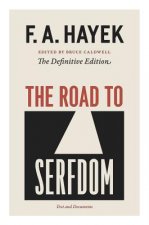
Road to Serfdom
428 Kč -

Rules for Radicals
254 Kč -

Anatomy of Fascism
329 Kč -

The Virtue of Nationalism
650 Kč -

Fanged Noumena - Collected Writings 1987-2007
731 Kč -
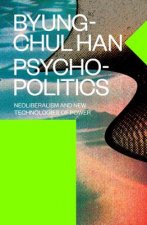
Psychopolitics
318 Kč -

State and Revolution
174 Kč -

Mein Kampf
873 Kč -

Communist Manifesto and Das Kapital
223 Kč -

Communist Manifesto
195 Kč -

Real North Korea
439 Kč -
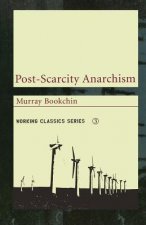
Post-scarcity Anarchism
399 Kč -
![What Is to Be Done? [Burning Questions of Our Movement] What Is to Be Done? [Burning Questions of Our Movement]](https://media.libris.to/jacket/08800888t.jpg)
What Is to Be Done? [Burning Questions of Our Movement]
194 Kč -

New Way Of The World
736 Kč -

Capitalism, Socialism and Democracy
389 Kč -

Coming Insurrection
303 Kč -

Socialism
354 Kč -

Mass Psychology of Fascism
463 Kč -

New Faces of Fascism
522 Kč -

Essential Writings of Karl Marx
488 Kč -

Marx'S Das Capital for Beginners
425 Kč -

Fascism for the Million
757 Kč -

Irreversible Damage
596 Kč -

American Fuehrer
1292 Kč -

Up from Liberalism
423 Kč -

Nations and Nationalism
898 Kč -

Origins and Doctrine of Fascism
1543 Kč -
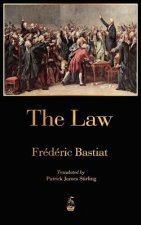
Law
251 Kč -

Marx's Fate
1192 Kč -

Dogs of the Sinai
650 Kč -
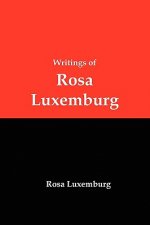
Writings of Rosa Luxemburg
523 Kč -

Blackshirts and Reds
360 Kč -

Imagined Communities
373 Kč -

The Rape of the Mind
370 Kč -

Brainwashed
426 Kč -

Why Liberalism Failed
404 Kč -

Rights of Man, Common Sense, and Other Political Writings
196 Kč -

Communist Manifesto
116 Kč -

Capital
463 Kč -

Brief History of Neoliberalism
660 Kč
Osobní odběr Praha, Brno a 12903 dalších
Copyright ©2008-24 nejlevnejsi-knihy.cz Všechna práva vyhrazenaSoukromíCookies



 Vrácení do měsíce
Vrácení do měsíce 571 999 099 (8-15.30h)
571 999 099 (8-15.30h)